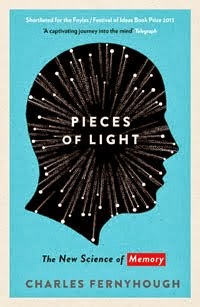I'd never had any success with getting stories into print. I was finishing off my PhD at Cambridge, and I'd had a poem accepted in the May Anthologies the previous year. The guest editor had been Seamus Heaney, so you can imagine what a trip that had sent me on. That year I had been on the student-run selection committee (no advantage since we—quite properly—weren't allowed to vote for ourselves). We felt that we were doing something important with some pieces of writing that showed huge promise, and that we might even be helping to launch some careers.
For the next year's prose anthology, Stephen Fry agreed to be the guest editor. I sent in my submission, waited, and eventually heard that it had been shortlisted by the selection committee. The next step was for the shortlisted entries to be posted off to Stephen, who would read them through and make his selection.
I didn't feel particularly hopeful. I'd had lots of rejections from literary magazines, and I'd come to assume that people just didn't get what I was trying to do (it's the excuse I still make to myself). Also, I was a Natural Scientist, and everyone else was studying literature and had read everything and could deconstruct texts very cleverly. They knew about Jane Austen. I knew about language development in children. It didn't seem to be a great platform for an assault on the literary world.
I got lucky, however. Stephen picked twelve stories and one of them was mine.
It was called 'A Photograph', and it was about adolescent sex and a tribute band called The New South Wales Police. I was very young, in my early twenties. In his foreword to the collection, Stephen wrote:
You will not find bombast, precocity, self-indulgence or self-importance here. You will find stories that are magnetically readable, memorable and moving.When I look at those stories now, particularly my own, I feel that Stephen was being kind. A couple of days before I heard that 'A Photograph' had been accepted, I wondered in my diary whether I was angry enough to be a writer. 'I'm playing,' I wrote. 'I'm feigning. I have this little uninteresting life and, worse, this little uninteresting mind. I shouldn't be bothering.'
 Actually, when I read back through my diary from that time, I can see that I was pretty angry, but about the wrong things. I was angry at people for not responding to submissions, for apparently not being interested in fiction that took risks and tried to go somewhere new. I was angry, but not in the right way. I wasn't yet able to channel that deep sense of outrage that propels a writer—to persuade my readers that there was something important that needed saying, and that I was the person to say it. When my dad died, three years later, I had plenty to be angry about. I think my writing changed then. I haven't really continued with short stories, although I have huge respect and admiration for the form. I've been drawn to the bigger canvas of the novel, the space it gives you to master a perspective and send lives into collision with each other.
Actually, when I read back through my diary from that time, I can see that I was pretty angry, but about the wrong things. I was angry at people for not responding to submissions, for apparently not being interested in fiction that took risks and tried to go somewhere new. I was angry, but not in the right way. I wasn't yet able to channel that deep sense of outrage that propels a writer—to persuade my readers that there was something important that needed saying, and that I was the person to say it. When my dad died, three years later, I had plenty to be angry about. I think my writing changed then. I haven't really continued with short stories, although I have huge respect and admiration for the form. I've been drawn to the bigger canvas of the novel, the space it gives you to master a perspective and send lives into collision with each other. I was writing a novel back then—my first—and struggling with it. (It was never published.) There were things I was supposed to be doing: applying for fellowships, securing an academic job, and joining the race to become a professor before the age of forty (or whatever other daft self-imposed goals seemed to matter to giddy young academics). I wasn't just losing the pace: I was turning on my heels and sprinting off in the wrong direction.
I was writing a novel back then—my first—and struggling with it. (It was never published.) There were things I was supposed to be doing: applying for fellowships, securing an academic job, and joining the race to become a professor before the age of forty (or whatever other daft self-imposed goals seemed to matter to giddy young academics). I wasn't just losing the pace: I was turning on my heels and sprinting off in the wrong direction.It was 1994. Looking back, I feel I could have saved myself so much pain. Nothing's going to happen any time soon, I would have told myself. Forget your daily word count. Forget the agents and those hopeful submissions. Wait. Enjoy it for what it is. Master your craft. And, in twenty years' time, you might have something to show for it.
In later years, the May Anthologies (now the Mays) went on to discover a few literary names, most famously Zadie Smith. Stephen didn't do too badly either.







No comments:
Post a Comment